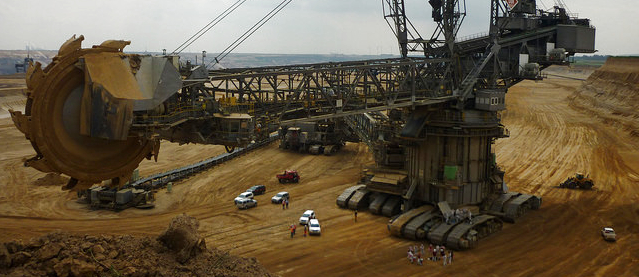Megatrends, das sind grundlegende gesellschaftliche Wandlungsprozesse, die man meist nicht „voraussagen” muss, sondern die bereits seit längerem unsere Gesellschaften verändern und uns auch noch lange prägen werden. Informiert man sich, was alles so als Megatrend bezeichnet wird, so listen beispielsweise das Zukunftsinstitut, die Webseite zukunftsstark.org oder die Unternehmensberatung PriceWaterhouseCoopers – mit leichten Abweichungen – folgendes auf: Urbanisierung, Globalisierung, Individualisierung, Gender Shift, Bevölkerungsentwicklung (als netter Euphemismus „Megatrend Silver Society“), Klimawandel – um nur einige zu nennen. Auch genannt werden sodann SmartCities, Konnektivität, Wandel der Arbeitswelt, Internetkultur & Digitalisierung, Intelligente Produkte & Infrastrukturen. Weiterlesen auf dem Blog Postwachstum
In October 2016, the FEMSA Foundation launched the XII Biennial of visual arts in the city of Monterrey, Mexico. For the first time in its 22 years of existence, this internationally well-known biennial has included a parallel curatorial program to articulate diverse pieces into a single discourse: The poetics of degrowth. How to live better with less? This novel project enhances new critica...
Von Fabian Scheidler und Andrea Vetter „Entschulung ist die Grundvoraussetzung jeder Bewegung für die Befreiung des Menschen“, schrieb der heute fast vergessene, einst weltberühmte Querdenker Ivan Illich 1971. Illich wurde in den 1970er Jahren mit Büchern wie Entschulung der Gesellschaft und Die so genannte Energiekrise zu einem der Vordenker sowohl der Freilerner- als auch der Postwachstums-...

Der Call for Courses für unsere Degrowth Konkret - Klimagerechtigkeit Sommerschule 2015 ist nun verlängert bis zum 7. Mai. Die Sommerschule findet vom 9. bis 14. August 2015 im Braunkohleabbaugebiet Rheinland zusammen mit dem Klimcamp statt. Den Kern des Sommerschul-Programms bilden Kurse, die durchlaufend an vier Vormittagen für jeweils 2,5 Stunden stattfinden. Darüber hinaus besteht auch die ...